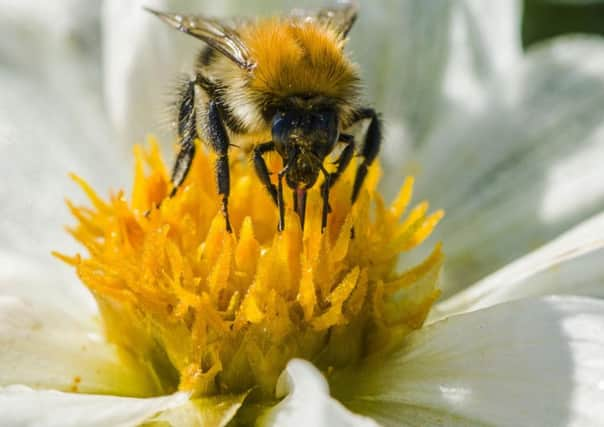Scottish Government plan to save bees and butterflies


The creatures aid plant reproduction by fertilising flowers as they flit from bloom to bloom harvesting nectar and pollen. In doing so they provide a crucial service not only to nature, but also to the agriculture industry.
It is estimated that 84 per cent of EU crops and 80 per cent of wild flowers rely on insect pollination.
Advertisement
Hide AdAdvertisement
Hide AdBut the latest surveys show numbers of these important species have crashed by 51 per cent since 1980.
The main threats come from intensive farming, habitat loss, use of pesticides and extreme weather conditions.
Scotland’s new 10-year plan calls for restoration and creation of flower-rich habitats, greater use of urban green space such as roof gardens, pollinator-friendly pest control and research into the impacts of climate change on bees and butterflies.
Launching the strategy, environment secretary Roseanna Cunningham said the government is “committed to making Scotland a more pollinator-friendly place”.
Conservationists have welcomed the move.
“Pollinators are a vital part of Scotland’s landscape,” said Bruce Wilson, senior policy officer for the Scottish Wildlife Trust.
“Many of our native wild flowers, shrubs and trees would be unable to exist without them.
“Bees and hoverflies also provide the backbone for much of Scotland’s agriculture, contributing around £43 million to the economy each year.”
He commended the aim to cut use of harmful chemicals, but called for an outright ban on neonicotinoids.
Advertisement
Hide AdAdvertisement
Hide AdBuglife Scotland director Craig Macadam stressed that sufficient resources must be made available to “turn ambition into action”.
Gill Perkins, chief executive of the Bumblebee Conservation Trust, described the strategy as “an excellent road map and inspiration to everyone to take positive action”.